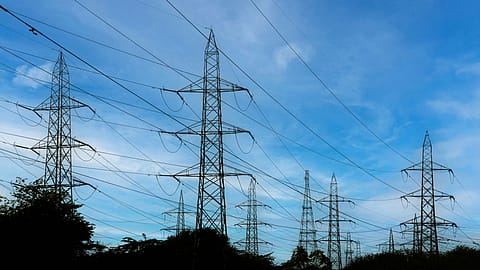Peak power demand in north India hits record high
All utilities have been advised to maintain a high state of alert and minimise forced outages of equipment, says power ministry

India’s northern region recorded the highest-ever peak demand of 89 gigawatts on June 17 as the prevailing heatwave continues to batter the plains.
The power ministry says it is taking comprehensive measures to ensure adequate power supply during increased summer demand.
“Despite these challenging conditions, the highest ever peak demand of 89 GW in the Northern Region was successfully met on 17th June 2024. This achievement was made possible by importing 25 to 30% of the region's power requirement from neighboring regions,” the ministry says in a press note.
All utilities have been advised to maintain a high state of alert and minimise forced outages of equipment, the power ministry says.
According to weather forecaster India Meteorological Department (IMD), heat wave conditions in North-West India are expected to abate from June 20. The maximum temperature in the national capital New Delhi has remained over the 41 degree Celsius mark since June 1. The minimum temperature also hit a high of 34 degrees Celsius, more than 5 notches above normal.
In response to the increased demand and to ensure adequate power availability across the country, the power ministry has implemented a series of measures to meet the highest-ever peak demand of 250 GW during this ongoing summer season. These measures include the use of Imported Coal Based (ICB) Plants to continue the generation support during the high demand period.
Minimum planned maintenance of generating units has been scheduled during this period. Efforts are being made to minimise partial and forced outages to maximise the availability of generation capacity, the ministry says. Additionally, plants under long-term outage have been sensitised to revive their units to ensure maximum power generation.
Recommended Stories
All power generating companies have been advised to keep their plants in healthy condition to ensure full capacity availability for optimal operation of various generation sources. Adequate coal stocks are being maintained at coal-based thermal stations.
Hydro stations have been advised to conserve water during solar hours and dispatch maximum generation during non-solar hours to ensure power adequacy at all times, the ministry says.
Gas-based power plants have been directed to provide grid support under Section 11 of the Electricity Act, 2003. Additionally, around 860 MW of additional gas-based capacity (non-NTPC) has been tied up through competitive bidding specifically for this summer. Around 5000 MW of NTPC gas-based capacity has been instructed to be ready for immediate operation as per system requirements.
“Any un-requisitioned or surplus power available with generating stations is to be offered in the market as per provisions of the Electricity (Late Payment Surcharge and Related Matters) Rules, 2022, and its amendments,” the power ministry says, adding this power can be utilised by any other buyer from the power market. States can also tie up power with other states having surplus capacity.
(INR CR)